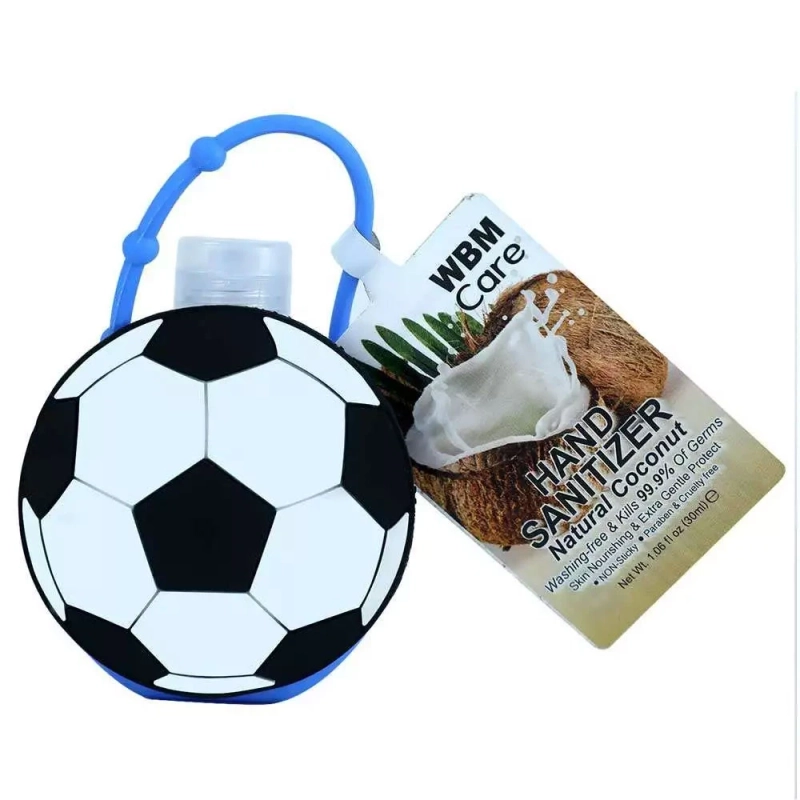The best times and ways to use hand sanitizers to prevent illness It's hardly unexpected that many individuals are taking additional precautions to be safe in light of the coronavirus (COVID-19) epidemic, including stocking up on sanitizing sprays, gels, and soaps.
But can hand sanitizers offer the best protection against germs and viruses like influenza and the coronavirus? Yes, according to the businesses that sell these items, which are occasionally designated as "antibacterial" or "antimicrobial."
However, other consumer advocates disagree, claiming that they are ineffective and may breed germs that are resistant to antibiotics.
How useful are hand sanitizers?
They're definitely useful in the hospital, to help prevent the transfer of viruses and bacteria from one patient to another by hospital personnel.
Outside of the hospital, most people catch respiratory viruses from direct contact with people who already have them, and hand sanitizers won't do anything in those circumstances. And they haven't been shown to have more disinfecting power than just washing your hands with soap and water.
Clean your hands properly
Eighty percent of diseases are spread by contact, but most of them may be avoided, according to Dr. Allan, by just washing our hands properly. If given the option, pick warm water.
Warm water is most likely your best option, according to Dr. Allan. It removes dirt and grease from your hands. Use at least a teaspoon of soap, work it into a lather, and wait at least 15 seconds before giving it a thorough rinse. After that, dry your hands with a fresh towel.
Research shows that most people wash their hands for less than 10 seconds, Dr. Allan says.
Increasing the wash time from 15 to 30 seconds can have a huge impact — it can decrease the number of bacteria on your skin by tenfold. The Centers for Disease Control (CDC) also recommends washing your wrists, around your fingernail edges and even all the way up to the forearms, as these areas tend to carry a significant amount of bacteria.
During the COVID-19 epidemic, meticulous hand hygiene has become a significant part of our everyday life. This might involve often applying hand sanitizer when travelling. It may be because the bulk of these traditional solutions are largely chemical-based that your skin feels dry, flaky, and painful.
Do natural hand sanitizers work?
Natural sanitizers effectively clean and protect hands from bacteria, but keep in mind, they should never completely take the place of proper hand washing. For a good guide, the Centre For Disease Control suggests products should have at least 60 percent alcohol.
According to Health Canada, washing your hands with soap and water for 20 seconds is the best way to keep germs away, but “hand sanitizers help reduce the risk of infection by, or spread of, microorganisms" and should be used especially when the first option is not available.
For people with allergies, sensitive skin, or various conditions like eczema or rosacea, organic products are a great option as they keep the risk of inflammation down, and won’t cause irritation.
Make sure to always read the ingredients before purchasing, and refer to Health Canada’s recall list for any concerns.
In the West, hand sanitizers are practically omnipresent. It is a $200 million a year industry in the US. While these cleaners can be helpful, particularly in clinical settings, they are far from being a benign frippery because they may also have a negative impact on health.
Using hand sanitizers and handling thermal paper (the kind frequently provided by credit card terminals, cash registers, and taxi drivers) causes the body to absorb biphenyl A, an extremely common hormone-disrupting chemical, according to a study published in Plos One in October.
This is because hand sanitizers make the skin more permeable. If you sanitize, handle thermal paper, and then eat with your hands, this is much more important.
As there isn't any water to wash the filth away, the alcohol in sanitizers only serves to kill certain bacteria, maybe while also reducing virus and fungal flora. You are not cleaner; nonetheless, you are most likely more sterile than before. However, is that always a good thing?
In a hospital, for sure. Or feel free to disinfect your hands if someone else sneezes on them. It's beneficial for those who are in the field without access to soap and water, such as troops. But in the school or playground? According to the Hygiene Hypothesis, which was initially presented by Dr. David Strachen in 1989, one cause for the rise in allergies and illnesses among western children is the need to sanitize their surroundings.
0


